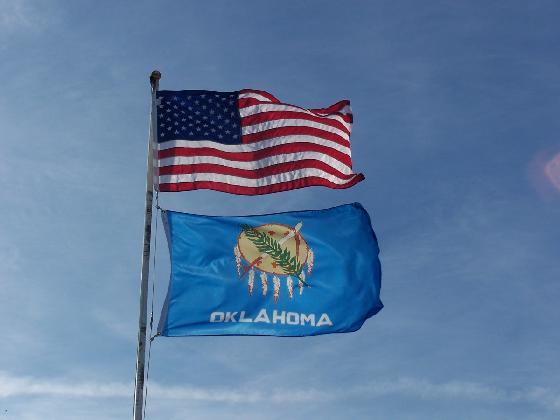In Clingman v. Beaver, 544 U.S. 581 (2005), the Supreme Court held 6-3 that Oklahoma’s interest in preserving the integrity of state parties as a viable interest group superseded the parties’ interest in opening their primary elections to members of an opposing party.
Libertarian Party wanted to to open its primary
The Libertarian Party of Oklahoma (LPO) had challenged the state’s semi-closed primary law, arguing that as a private organization, it could invite whomever it wanted to participate in its elections; the law therefore violated its First Amendment right to association.
Court said state interest outweighed parties’ interest
Justice Clarence Thomas, in the opinion for the Court, asserted that if the LPO allowed anyone to vote in its primary, it could make itself vulnerable to fielding candidates “hostile to the political preferences of the majority of the LPO’s members.” He also argued that the state had an interest in preventing “party raiding” and “sore losers” candidacies.
The Court reasoned that if one of the major parties had an uncontested primary election, large blocks of voters from that party might switch to the LPO to vote for the candidate most likely to siphon votes from their opponent in the general election.
Previous rulings sided with political parties’ rights to control election procedures
The Clingman decision departed from an earlier line of cases that had consistently sided with political parties’ right of association.
In Tashjian v. Republican Party of Connecticut (1986), the Court ruled that the state could not prevent political parties from inviting independents to vote in their primaries.
In California Democratic Party v. Jones (2000), the Court overturned a law requiring political parties to allow members of other parties to vote in their primaries. Until 2005, the Court had almost always sided with a political parties’ right to control its membership and election procedures.
Clingman left Court in untenable position
The Court’s stance in Clingman left it in the untenable position of arguing that while the state cannot prevent political parties from inviting independent voters to participate in primaries, it can prohibit parties from inviting members of other political parties to take part.
Justice John Paul Stevens highlighted this tension in his dissenting opinion, arguing that if political parties can invite independents into their process, they surely should be able to invite members of other parties as well. He also noted that if the state cannot force parties to allow certain people to participate, the state should not be able to prevent parties from inviting them in either.
This article was originally published in 2009. Matthew Manweller was a Professor at Central Washington University.

